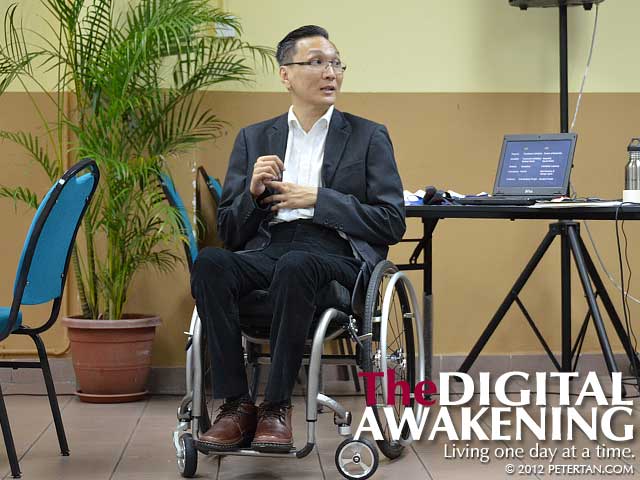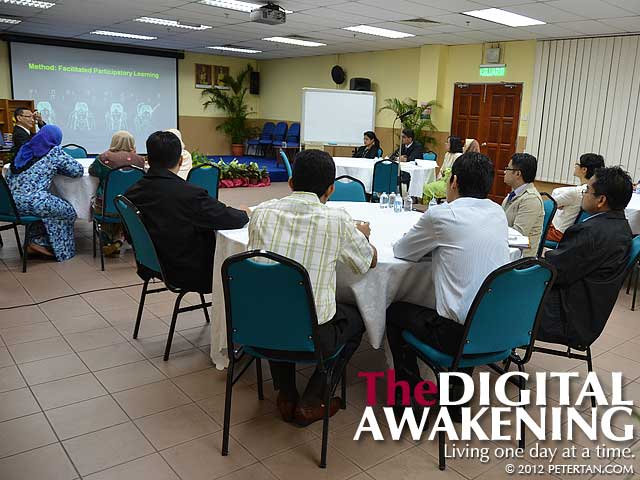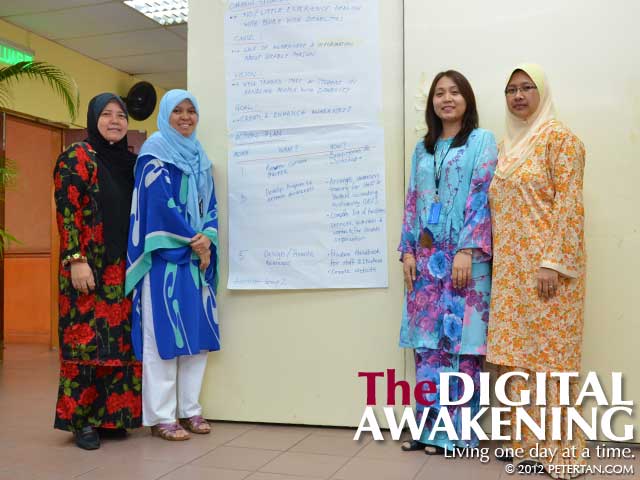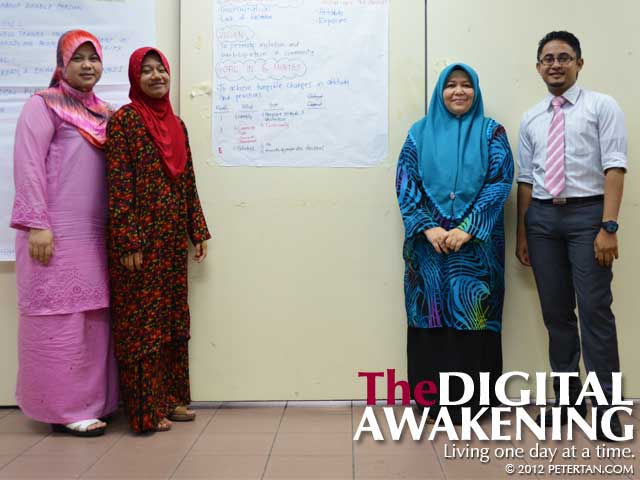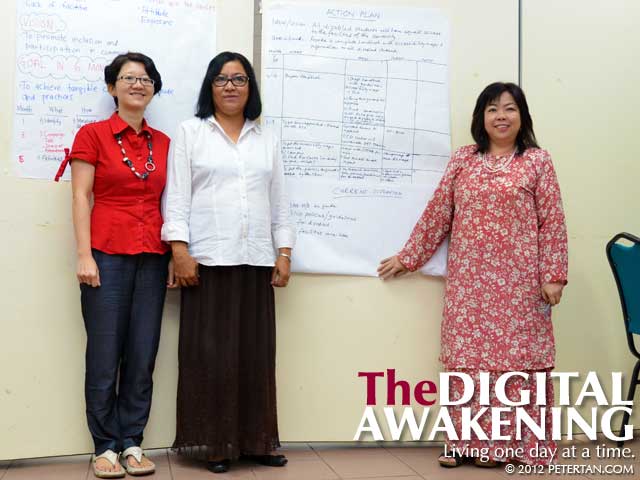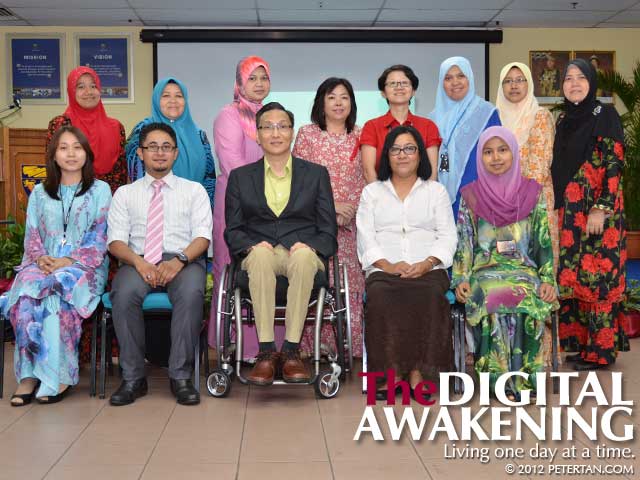On my last medical review at the Rehabilitation Medicine Department of University of Malaya Medical Centre (UMMC), Dr. Nazirah, the organising chairman of the 11th Asian Spinal Cord network Conference, asked if I would like talk about my work on disability rights advocacy at the conference.
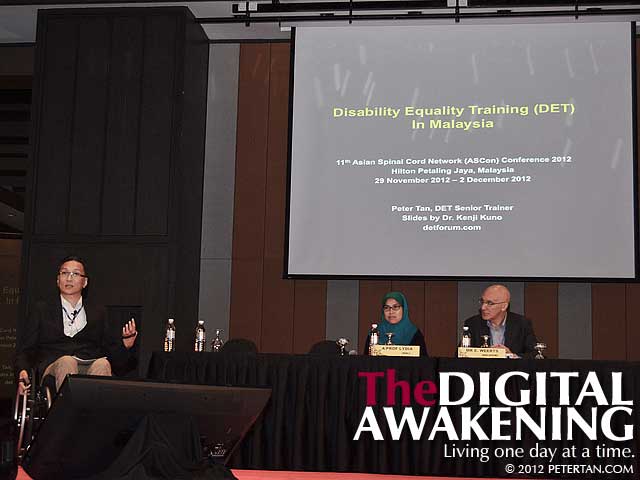
Peter Tan speaking about Disability Equality Training (DET) at the ASCoN 2012.
Photo by Wuan.
I thought that would be a good opportunity to promote Disability Equality Training (DET) to a wider audience, especially to doctors and therapists involved with rehabilitation of people with spinal cord injury and people living with spinal cord injury as well.
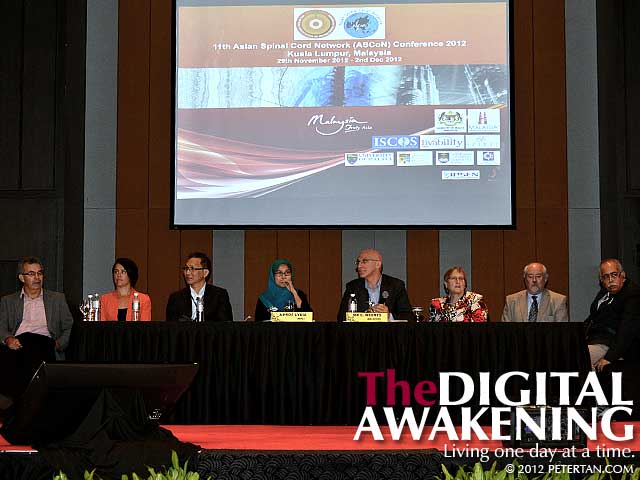
Peter Tan with fellow plenary panelists at ASCoN.
Photo by Wuan.
The conference was to run from 29th November to 2nd December at the Hilton Petaling Jaya Hotel. At that time, I had already committed to facilitate a 2-1/2 day DET workshop at University of Malaya. Fortunately, Dr. Julia from the conference’s Scientific Committee slotted me for a 30-minute plenary session on 1st December. This allowed me to ease nicely in just after the workshop.
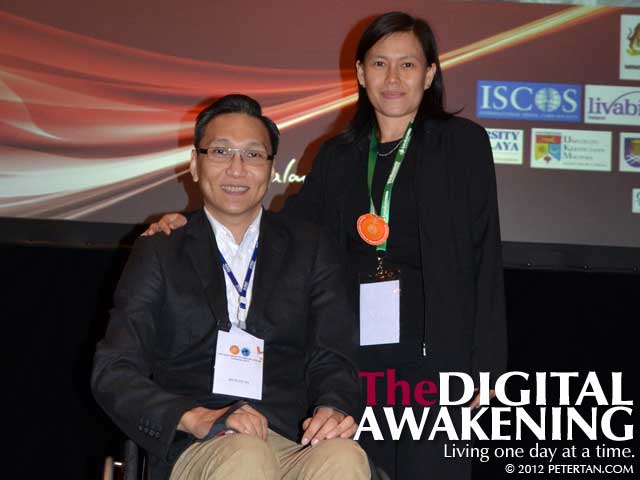
Dr. Julia Patrick Engkasan with Peter Tan at ASCoN 2012.
Photo by Wuan.
My work for the presentation was already half-done before the conference as I used the slides by Dr. Kenji Kuno of the Japan International Cooperation Agency (JICA) on the same subject. Those slides illustrated DET in an easy to understand way and yet gave a comprehensive picture of what it is all about. I could not have done any better had I attempted to make my own slides.
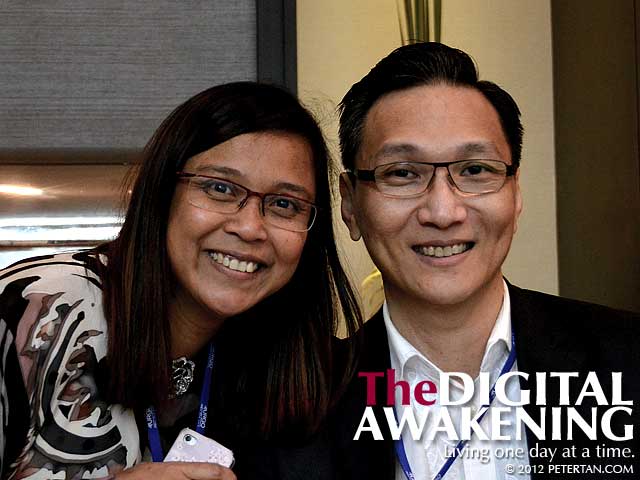
Dr. Nazirah Hasnan with Peter Tan at ASCoN 2012.
Photo by Wuan.
For many of the local and international delegates, that was the first time they have heard of DET although Dr. Kuno had conducted DET Training of Trainers workshops in 18 countries across the Asia-Pacific, Africa and Latin America for the past several years. I am glad and honoured to be given this opportunity to share with them about DET and how it is changing the landscape in those countries to enable full participation of disabled people in society.

